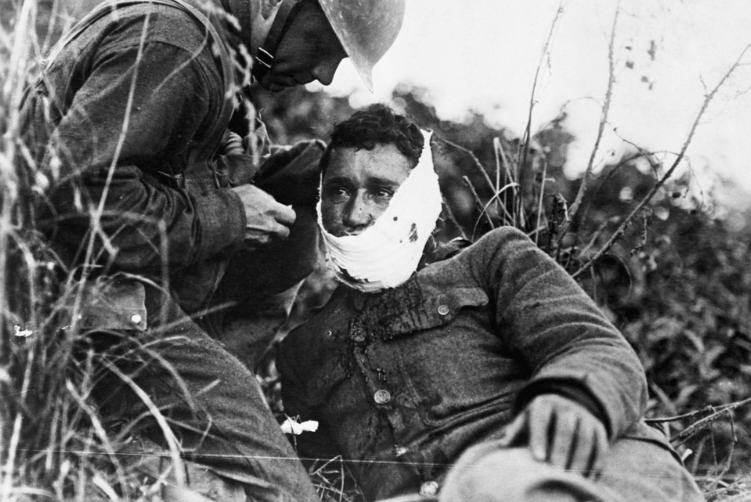Although my grandfather fought in the First World War, I’ve never had a conversation with somebody who did. I cared for a patient who remembered being in Archangel in 1918; it was all he could remember about his life. But the invasion of Bolshevik Russia was not part of the main war and was a less-costly failure. But I do know people, including my own father, who’s fathers were in the First World War, and mostly the fathers never spoke about it. There are many novels in which we see inside the heads of soldiers who came home from the war, and below is one I read this morning in Volume Two of “The Forsyte Saga,” which its author, John Galsworthy, describes as a comedy. I was taken by the description:
“Desert [a poet] never spoke of the war, it was not possible to learn from his own mouth an effect which he might have summed up thus: ‘I lived so long with horror and death; I saw men so in the raw; I put hope of anything out of my mind so utterly, that I can never more have me faintest respect for theories, promises, conventions, moralities, and principles. I have hated too much the men who wallowed in them while I was wallowing in mud and blood. Illusion is off. No religion and no philosophy will satisfy me – words, all words. I have still my senses – no thanks to them; am still capable – I find – of passion; can still grit my teeth and grin; have still some feeling of trench loyalty, but whether real or just a complex, I don’t yet know. I am dangerous, but not so dangerous as those who trade in words, principles, theories, and all manner of fanatical idiocy to be worked out in the blood and sweat of other men. The war’s done one thing for me – converted life to comedy. Laugh at it – there’s nothing else to do!’

With the benefit of (advanced!) old age, I can now better appreciate how life must have been for my father after his return from the battlefields of the First World War, than I could when I was in my forties when he died. (He signed up at age 15 and fought throughout in the Royal Engineers from 1914-1918.) It is my belief that he preferred to concentrate on working to give my brother and me all the things that he could not enjoy in his childhood and teenage years. Selflessly looking ahead, not burdening us with past horrors and suffering. Admirable reticence: not much of it about these days… He, like Galsworthy`s hero, could `grit his teeth and grin`.
LikeLiked by 1 person
A hero of the old sort.
LikeLike